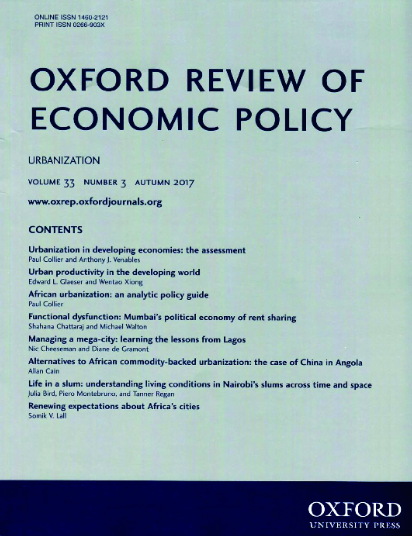Classical realism and the challenge of global economic governance
IF 1.8
2区 经济学
Q2 ECONOMICS
引用次数: 0
Abstract
This paper considers the prospects for global economic governance from the perspective of classical realism. It explains why, from this perspective, the American-led liberal international order, is over—and is not coming back. Classical realism anticipates a US renunciation of the orchestration of global governance, one rooted principally in shifts in its purpose, rather than by changes to its relative capabilities. This transformation of American purpose is a consequence of its domestic politics—in particular, the rise in economic inequality, the emergence of plutocracy, and the dysfunctional political polarization stimulated by those trends—a predictable result of a tectonic shift in the culture of capitalism from one associated with the ‘compromise of embedded liberalism’ towards the exaltation of ‘shareholder value’. This yields pessimistic conclusions not only about American foreign policy, which is likely to be more short-sighted, mercurial, and transactionalist, but also regarding the prospects for global economic governance. Realism sees international cooperation as challenging to establish and maintain, given the consequences of anarchy. In the coming years, episodes of cooperation will surely emerge, but they will likely be ad-hoc, mini-lateral, and fragile. Orchestrating ambitious schemes of global economic governance is less likely when a predominant power has lost interest in such things.经典现实主义与全球经济治理的挑战
本文从古典现实主义的角度探讨了全球经济治理的前景。它解释了为什么从这个角度看,美国主导的自由主义国际秩序已经结束,而且不会再回来。古典现实主义预示着美国将放弃对全球治理的协调,这种放弃主要源于其目的的转变,而非其相对能力的变化。美国目标的转变是其国内政治的结果,特别是经济不平等的加剧、财阀的出现以及由这些趋势引发的功能失调的政治两极分化,这是资本主义文化从 "嵌入式自由主义的妥协 "向 "股东价值 "转变的可预见的结果。这不仅对美国的外交政策产生了悲观的结论--美国的外交政策可能更加短视、多变和交易主义,而且对全球经济治理的前景也产生了悲观的结论。现实主义认为,鉴于无政府状态的后果,建立和维持国际合作具有挑战性。在未来几年里,合作事件肯定会出现,但它们很可能是临时的、小型的、脆弱的。当霸权国家对全球经济治理失去兴趣时,就不太可能制定雄心勃勃的全球经济治理计划了。
本文章由计算机程序翻译,如有差异,请以英文原文为准。
求助全文
约1分钟内获得全文
求助全文
来源期刊

Oxford Review of Economic Policy
ECONOMICS-
CiteScore
12.50
自引率
1.50%
发文量
41
期刊介绍:
The Oxford Review of Economic Policy is a refereed journal which is published quarterly. Each issue concentrates on a current theme in economic policy, with a balance between macro- and microeconomics, and comprises an assessment and a number of articles. It gives a valuable appraisal of economic policies worldwide. While the analysis is challenging and at the forefront of current thinking, articles are presented in non-technical language to make them readily accessible to all readers. The Oxford Review is aimed at a wide audience including government, business and policy-makers, as well as academics and students. It is required reading for those who need to know where research is leading.
 求助内容:
求助内容: 应助结果提醒方式:
应助结果提醒方式:


